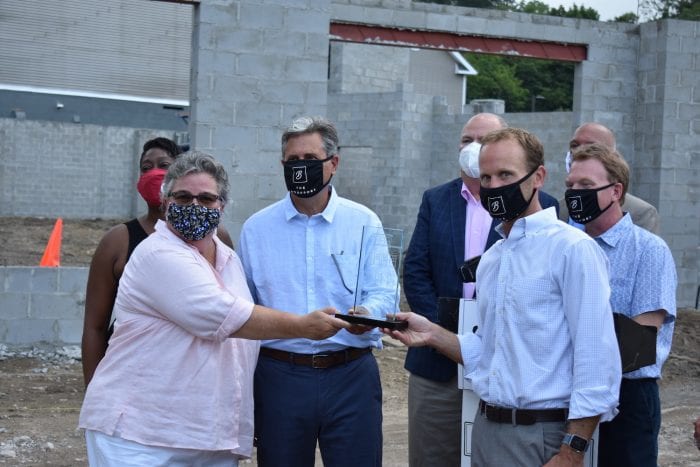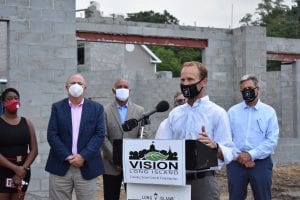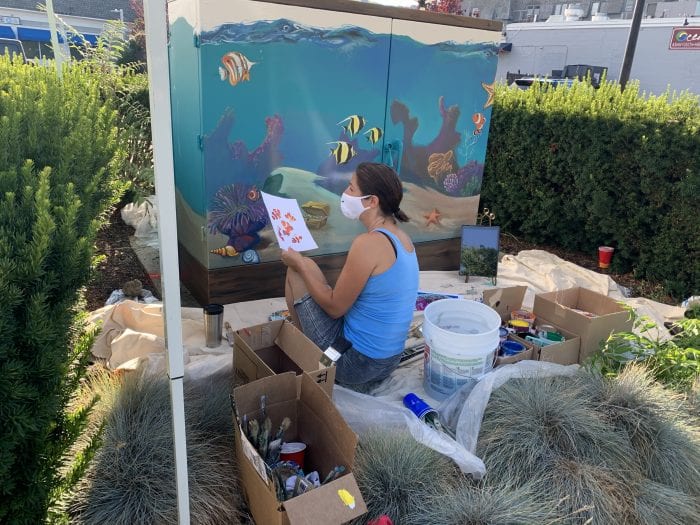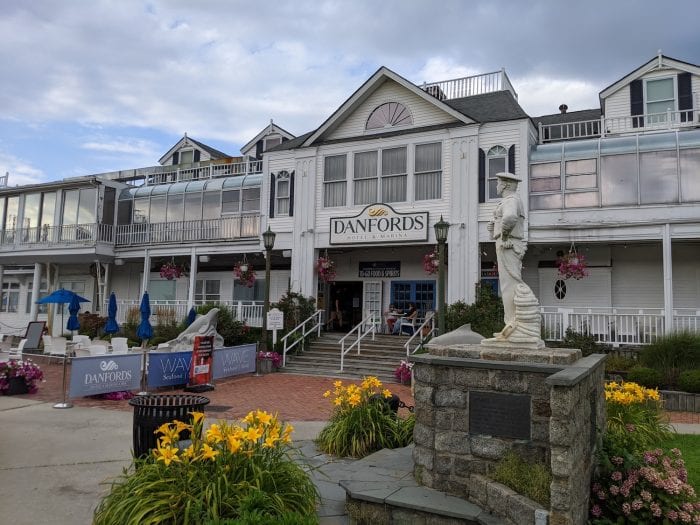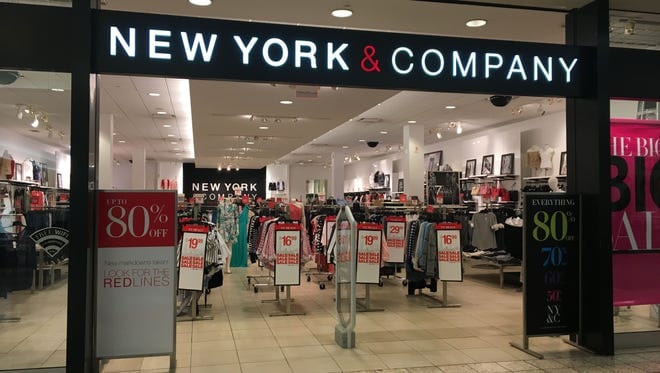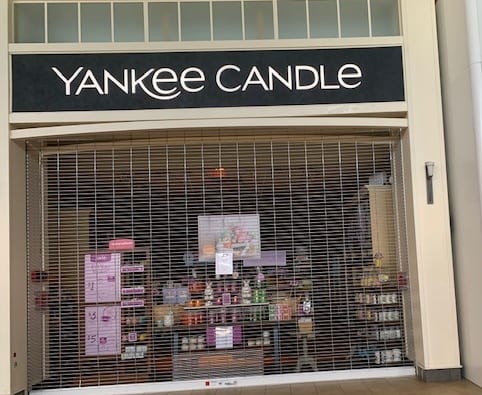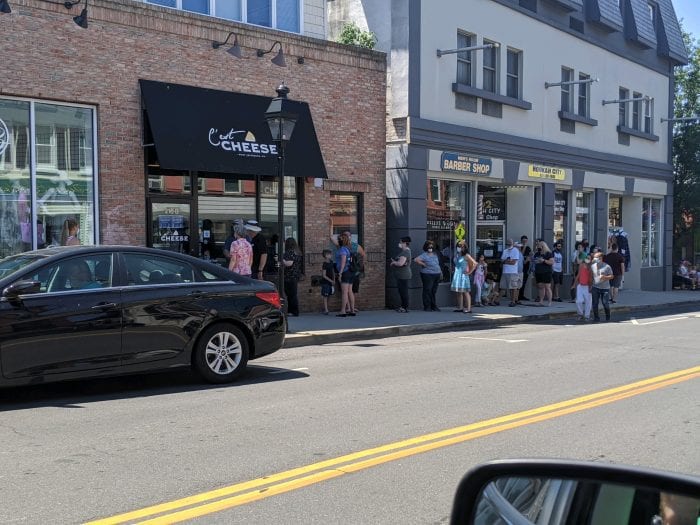By Odeya Rosenband
As they work to optimize their indoor and outdoor dining rooms, local restaurants are forced to become constables for new policies: masks.
Beginning in July, New York State Gov. Andrew Cuomo (D) laid out new regulations for food vendors as Long Island entered Phase 4. With the reopening of indoor dining rooms to half capacity, the Governor imposed subsequent restrictions on bar services, now requiring each restaurant patron to order a food item with a beverage.

But even as regulations are ever-changing, the requirement to wear masks stays the same.
The challenge with masks is that unlike other guidelines, it is harder for restaurants to control. Gail McNulty, the owner of McNulty’s Ice Cream Parlor in Miller Place described how “it is very routine for our workers to put on a mask as soon as we come in the door, and so we are modeling this good behavior. And if a customer doesn’t have a mask, we can provide them with a disposable one.”
These provisions have proven successful for McNulty, who describes her clients as highly conscientious and respectful when it comes to masks.
“This is my community and these are my friends,” she said. “I want to make sure I’m doing the right thing… that’s the only way, and it’s our way.”
According to the state guidelines, customers are required to wear a mask when they are moving around the premises of a restaurant’s property, but can take their mask’s off when seated. A restaurant can lawfully deny anyone who declines to wear a mask — which, even McNulty said she had to do at one point.
So, why do so many people refuse to wear a mask?

“A major factor is partisanship,” said Stanley Feldman, a professor of Political Science at Stony Brook University. “It is clear that one of the things that has happened is that largely, Democratic Governors and Mayors come out strongly in favor of masks. And so, wearing a mask or not has gotten tied up with this identification of being a Democrat or Republican… and partisanship is a very strong identity.”
Feldman, who specializes in political psychology, also noted that if President Trump had enforced masks in March or April, there “is a good likelihood that there would be less of a partisan division on masks.” President Donald Trump (R) has largely been opposed to making masks a federal requirement, and he himself has gone back and forth on the need for himself to wear a mask when in public.
Recent surveys conducted by the Pew Research Center demonstrate that when it comes to wearing a mask, the gap between Republicans and Democrats is only growing. According to the study, this increase can be attributed to a shift in attitudes toward the virus.
“A majority of Republicans and Republican-leaning independents (61%) now say that when thinking about the problems facing the country from the coronavirus, ‘the worst is behind us,’” the study says.
By contrast, just 23 percent of Democrats and Democratic-leaning people say that the worst is behind us when it comes to problems from the coronavirus. For Republicans, this is a sizable change since April, when 56 percent said the worst of the virus was yet to come.
“How on earth would these differences be so massive if it wasn’t a political issue?” said Leonie Huddy, the department chair and professor of Political Science at SBU.
Huddy pointed out another indicator of different mask tendencies: gender.
“Trump sent out the message that wearing a mask isn’t masculine — and there do appear to be some gender differences in who is wearing a mask,” he said.
Although Long Island has done a good job with enforcing masks, Feldman said he never expected that compliance would be 100 percent.
“The US has this political culture of government not telling you what to do,” he said. “And so I think, to some extent, there’s some reaction against wearing a mask because it appears to be mandated by the government and some people think it’s infringing on their liberty.”
Feldman added, “I think the most important thing is that there is a strong uniform message. It has got to come from politicians in both parties and people who are influential. They need to try to send the message that wearing a mask is the right thing to do.”
While the return to restaurant eating is a return to normalcy for many, the masks are a reminder of how far New York has come and how far it has yet to go in terms of grappling with the pandemic. As local restaurants inch back to their pre-COVID statuses, it remains that Gov. Andrew Cuomo’s (D) mask guidelines are here to stay.
“I think New York is a good example of people who are very well behaved,” Huddy said. “I think worrying about getting the disease, gives you a different perspective.”


